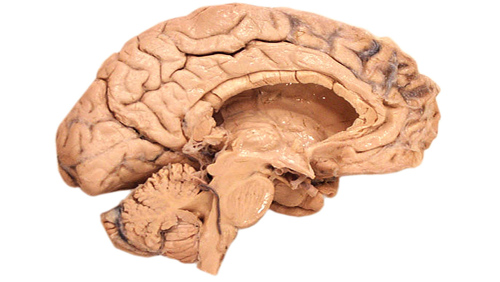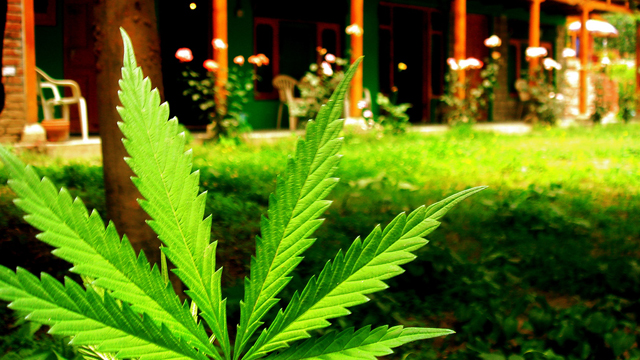Surprising Science
All Stories
“It looks like an iPad, only it’s 1/14th the cost: India has unveiled the prototype of a $35 basic touchscreen tablet aimed at students, which it hopes to bring into production by 2011.”
A strange, rare flower that smells like decomposing flesh is set to bloom any moment at the Houston Museum of Natural Science. The Sumatran Amorphophallus titanum is endangered in the wild due to deforestation, and even in cultivation it is difficult to grow.
The U.S. Navy has successfully tested a sea-bound laser weapon, ushering in a new era of warfare. In light of this news, Big Think presents a timeline of the history of laser technology.
“The heaviest and brightest star known to exist—with a mass some 300 times as big as our own Sun—has been discovered by British astronomers.” The Independent reports.
The disturbing imagery of blocking the sun to slow climate change aside, geoengineering faces serious practical concerns. The Economist looks at the ups and downs of this radical solution.
“America, are you happy? The emotional words contained in hundreds of millions of messages posted to the Twitter website may hold the answer.” Two scientists on mulling Twitter data.
“Experts writing this year’s dietary guidelines say strong evidence indicates that moderate alcohol consumption results in a longer life and slower cognitive decline.”
Without the ability to daydream and hallucinate, computers will never think as humans do. David Gelernter, Yale professor of computer science, predicts the next stages of AI.
“Amazon reports that sales of e-books have finally surpassed sales of hardcovers. That’s a pretty momentous development.” Megan McArdle at The Atlantic thinks the Kindle’s day has come.
“So even though a meat-free world sounds good on paper, it is likely that a utopian future will still have some animal products in it. And we are talking meat, not just milk and eggs.”
Scientists’ understanding of Mercury, the planet closest to the Sun, changed dramatically this past week, thanks to images and data from the satellite Messenger. In September of last year, the […]
“In a marriage, the common symptoms of A.D.H.D.—distraction, disorganization, forgetfulness—can easily be misinterpreted as laziness, selfishness and a lack of love and concern.”
“Marijuana is one of the top cash crops in the United States. So why is there so little coverage of this business, as a business?” The Big Money inaugurates a blog on the marijuana trade.
“Scientists yesterday hailed a potential breakthrough in the fight against Aids after a vaginal gel was found to cut HIV infection rates by up to 50 per cent.” The Independent reports
The key to fighting Alzheimer’s disease may be a single brain protein called amyloid beta, which is the subject of dozens of current scientific studies. A recent New York Times article […]
California is currently considering a couple of bills that could effectively legalize marijuana use. One plan would place a heavy excise tax on the drug—which could help plug the state’s […]
“The public health establishment has been wrong before. The best advice that government can give citizens is to develop their own diet and exercise plans.” Read it at the L.A. Times.
“For people with depression the world really does look dull. That’s because their ability to perceive contrast is impaired.” A new experiment could help diagnose clinical depression.
A Harvard psychologist says we group people into two broad categories: “moral agents” and “moral patients”; those who take action and those who receive the actions of others.
Governments whose national health services include homeopathic treatments are being asked to eliminate such programs by those who question homeopathy’s medical legitimacy.
“It’s a provocative question, but that’s exactly what a group of health care specialists on the other side of the pond are recommending.” The British Medical Journals draws parallels to neglect.
“Plants can transmit information ‘from leaf to leaf in a very similar way to our own nervous systems,’ BBC News wrote.” Scientific American examines the implications of this observation.
“If you look back on history, you get the sense that scientific discoveries used to be easy. Today, it takes ever more money, more effort, and more people to find out new things.”
A game currently under development will allow players to interact emotionally with a virtual human. Is it the end of human connections or the fortification of our innate emotional sense?
“Being fat may diminish mental performance, studies find—a problem that worsens with age. But among elderly women, where fat is deposited may matter,” reports Science News.
The Economist’s technology blog approves of Apple’s solution to its iPhone 4 reception problem, but it continues to wonder whether the company is denial about a larger problem.
“From lower birthrates to decreased civic participation and volunteerism, economic downturns have many non-economic effects.” The L.A. Times says people “hunker down” during hard times.
Yesterday, President Obama traveled to Holland, Michigan, a city on the western shore of the state’s Lower Peninsula, to attend the groundbreaking for a factory that will manufacture high-grade lithium-ion […]
A single gene has been found to be shared in nearly all living animals—”including sea anemones, worms, insects, marine invertebrates, fish and humans.”
While mobile technology was supposed to liberate us from our desks, Rebecca Traister writes that they now make us feel like we never have any free time.





